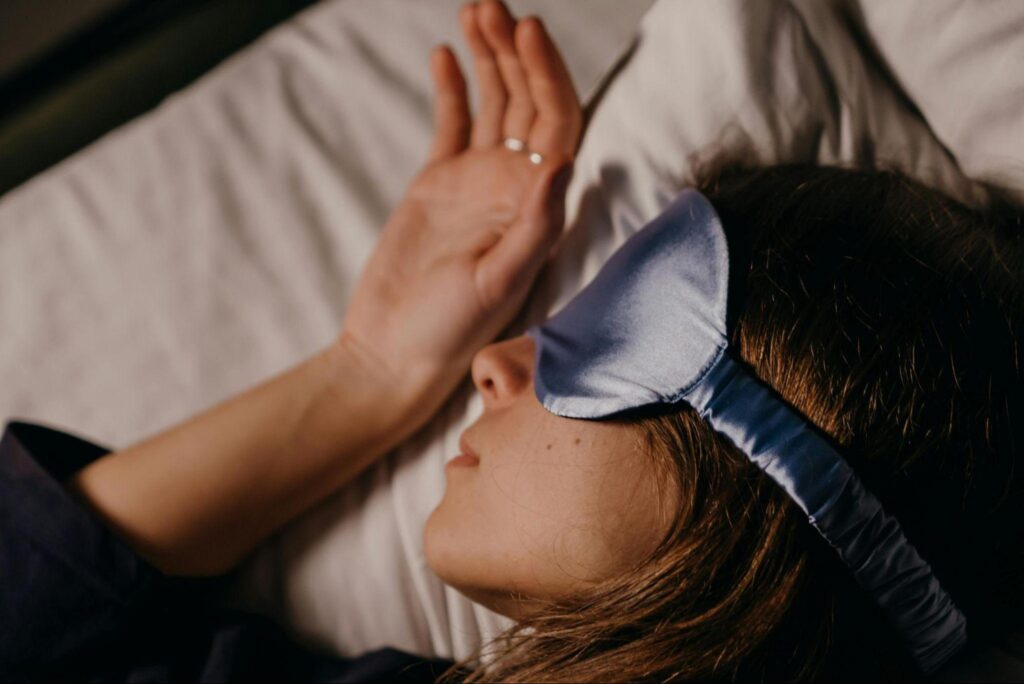
Cannabis and Sleep: What You Need to Know
In today’s fast-paced world, sleep is an essential pillar of health for everyone, regardless of age, gender, or profession. However, if you’re struggling to get a good night’s rest, you’re not alone. Millions of Australians suffer from sleep disturbances caused by pain, stress, or mental health challenges. Medical cannabis is emerging as a potential solution to help combat insomnia and other sleep disorders.
This article explores how medical cannabis works as a sleep aid, its effects on the body, and the potential benefits and risks of using cannabis to improve sleep in Australia.
How Cannabis Works as a Sleep Aid
To understand the role of cannabis in promoting better sleep, it’s essential to grasp the science behind how it interacts with the human body. The primary components in cannabis responsible for its effects are known as cannabinoids, which interact with the body’s endocannabinoid system. This system plays a critical role in regulating mood, sleep, appetite, and pain.
The two most well-known cannabinoids are:
- Cannabidiol (CBD): A non-psychoactive compound that offers several health benefits without causing a “high.” CBD is widely used to reduce anxiety, pain, and inflammation.
- Tetrahydrocannabinol (THC): The psychoactive component of cannabis that can induce a sense of euphoria or relaxation. THC is often linked to sleep benefits but can also have stimulating effects in some individuals.
In Australia, medical cannabis products can be prescribed to patients for sleep issues, often with a focus on THC or CBD depending on their symptoms. The dosage and strain prescribed by a healthcare professional play a crucial role in determining how effective cannabis will be in promoting sleep.
Indica vs. Sativa vs. Hybrids
Cannabis strains are commonly classified into three main categories: Indica, Sativa, and hybrids, each with different effects on the body.
- Indica strains are often associated with calming, relaxing effects that are beneficial for sleep.
- Sativa strains are known for their energizing and uplifting properties, which can be less ideal for nighttime use.
- Hybrid strains combine elements of both Indica and Sativa and may be tailored to meet specific sleep needs.
However, it’s important to remember that individual experiences can vary. Some experts believe that the cannabinoid and terpene content of the strain, rather than the strain type itself, plays a more significant role in how cannabis affects sleep.
How Cannabis Impacts Sleep
Research shows that THC, in particular, has the ability to induce sleep by interacting with the brain’s cannabinoid receptors. This interaction increases levels of sleep-promoting chemicals like adenosine while simultaneously reducing arousal levels in the brain, leading to feelings of drowsiness or sedation.
One of the most notable effects of THC is its impact on REM sleep. THC reduces the amount of time spent in the REM phase of the sleep cycle, which is the stage where most dreaming occurs. For individuals with PTSD or those prone to nightmares, this can be a benefit. However, spending less time in REM sleep can mean more time in the deep sleep stage, which is considered the most restorative phase of sleep.
On the other hand, for individuals new to cannabis or those consuming higher doses, THC may have stimulating effects, leading to difficulty falling asleep. In such cases, CBD may be a better alternative, as it can promote alertness at lower doses and induce sleepiness at higher doses.
Both CBD and THC are also known to help individuals suffering from chronic pain, which can be a significant contributor to sleep problems. In Australia, many patients with pain-related insomnia are prescribed medical cannabis to improve their quality of sleep.
Potential Risks and Side Effects of Cannabis for Sleep
While medical cannabis offers potential benefits for sleep, there are also risks to consider. Long-term use of cannabis as a sleep aid may lead to the following issues:
- Reduced overall sleep quality
- Shortened time spent in deep sleep
- Delays in falling asleep
- Frequent awakenings during the night
Moreover, the reduction in REM sleep caused by THC may impair cognitive and immune function over time, as REM sleep is essential for healthy brain development and memory processing.
In Australia, cannabis is not recommended for certain populations, such as pregnant or breastfeeding women, children, or adolescents, due to the potential impact on brain development.
Best Practices for Using Cannabis for Sleep in Australia
Finding the right cannabis dosage and method of consumption for sleep can be a trial-and-error process. Since cannabis affects each individual differently, it’s essential to consult with a healthcare professional who can guide you through the process.
Methods of Consumption
There are various ways to consume medical cannabis, each with different onset times and durations:
- Inhalation (smoking or vaping): This method delivers cannabinoids directly into the bloodstream, resulting in faster onset of effects. It is best suited for individuals seeking immediate relief from pain or sudden sleep disturbances.
- Edibles: Cannabis-infused edibles take longer to take effect since they must first pass through the digestive system. However, they provide longer-lasting relief, making them ideal for those with chronic pain or conditions requiring consistent dosing.
- Tinctures or oils: These are taken sublingually (under the tongue) and provide a balance between the immediate effects of inhalation and the longer-lasting effects of edibles.
Timing of Consumption
The timing of cannabis consumption is critical for optimal sleep benefits. For inhaled cannabis, the effects are typically felt within minutes, while edibles may take one to two hours to kick in. It’s generally recommended to consume edibles at least an hour before bedtime to allow for a smoother transition into sleep.
Patients using cannabis for sleep should avoid consuming large doses too close to waking hours, as the lingering effects of THC could cause grogginess or lethargy in the morning.
Avoiding Overstimulation
Although cannabis can promote relaxation and sleep, overconsumption can have the opposite effect, leading to feelings of overstimulation, anxiety, or grogginess. In Australia, medical cannabis professionals typically recommend starting with a low dose and gradually increasing it to avoid negative side effects. It’s also important to avoid re-dosing within four hours of waking to prevent grogginess.
Cannabis vs. Other Natural Sleep Aids
While cannabis is gaining popularity as a sleep aid, it’s worth comparing it to other natural remedies. Herbal supplements like valerian root, melatonin, and chamomile have been used for centuries to promote sleep without the psychoactive effects associated with cannabis.
However, for some Australians, medical cannabis provides a safer alternative to stronger pharmaceutical sleep aids like opioids or benzodiazepines, which can be addictive or cause dependency. Unlike many prescription drugs, cannabis is not associated with fatal overdoses, making it a viable option for patients seeking long-term sleep solutions.
Conclusion
For Australians struggling with sleep disorders, medical cannabis offers a promising option. Its ability to manage pain, reduce anxiety, and promote relaxation can make it an effective treatment for insomnia and other sleep disturbances. However, like any medication, it comes with potential risks, so it’s important to work with a qualified healthcare provider to determine the best approach for your unique needs.
Whether you’re dealing with chronic pain, stress-induced insomnia, or another sleep-related condition, medical cannabis may be the key to achieving the restful, restorative sleep you need to thrive. Contact Cannabis Medicine Australia to learn more about how cannabis can improve your sleep and overall well-being.







